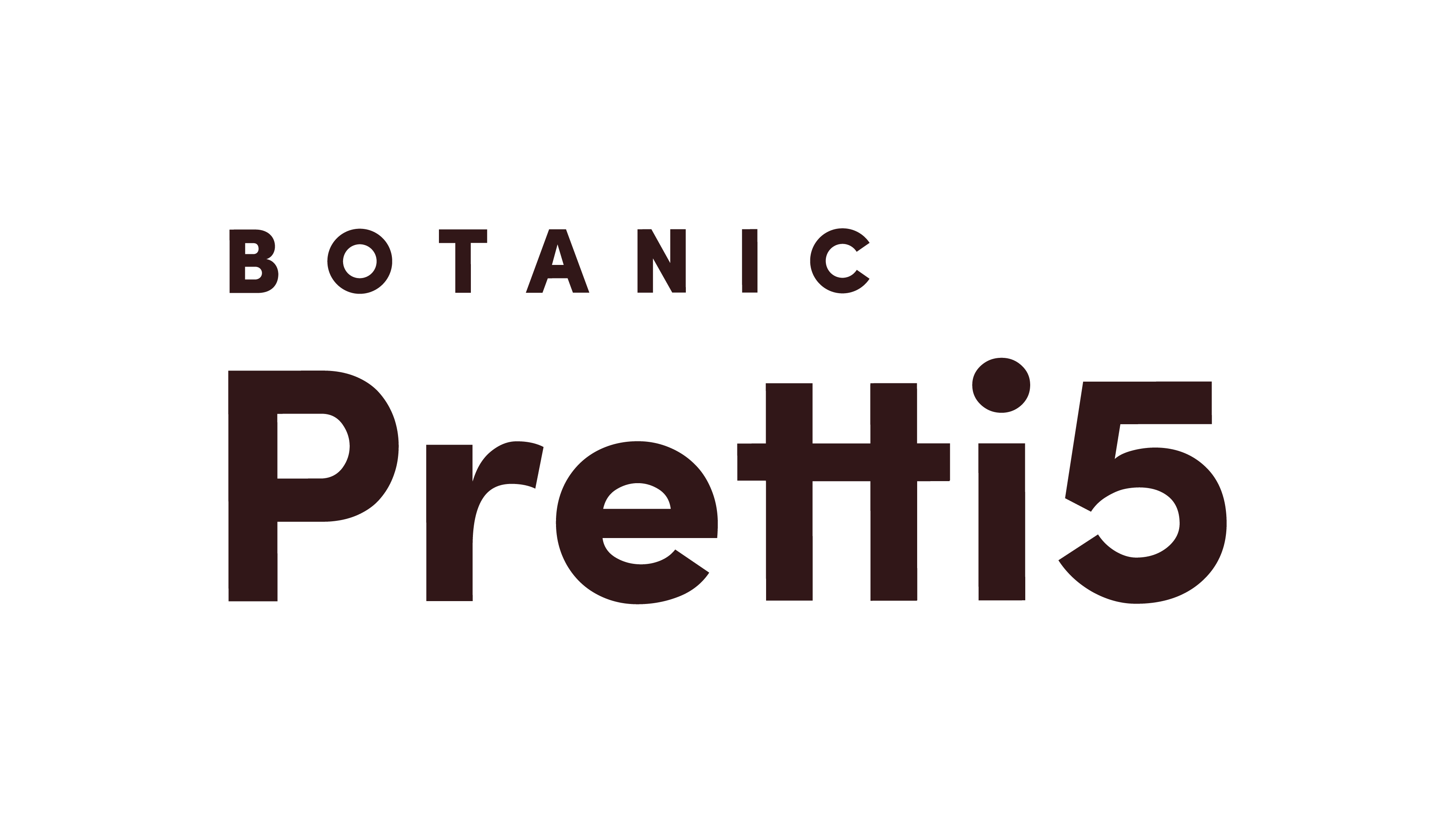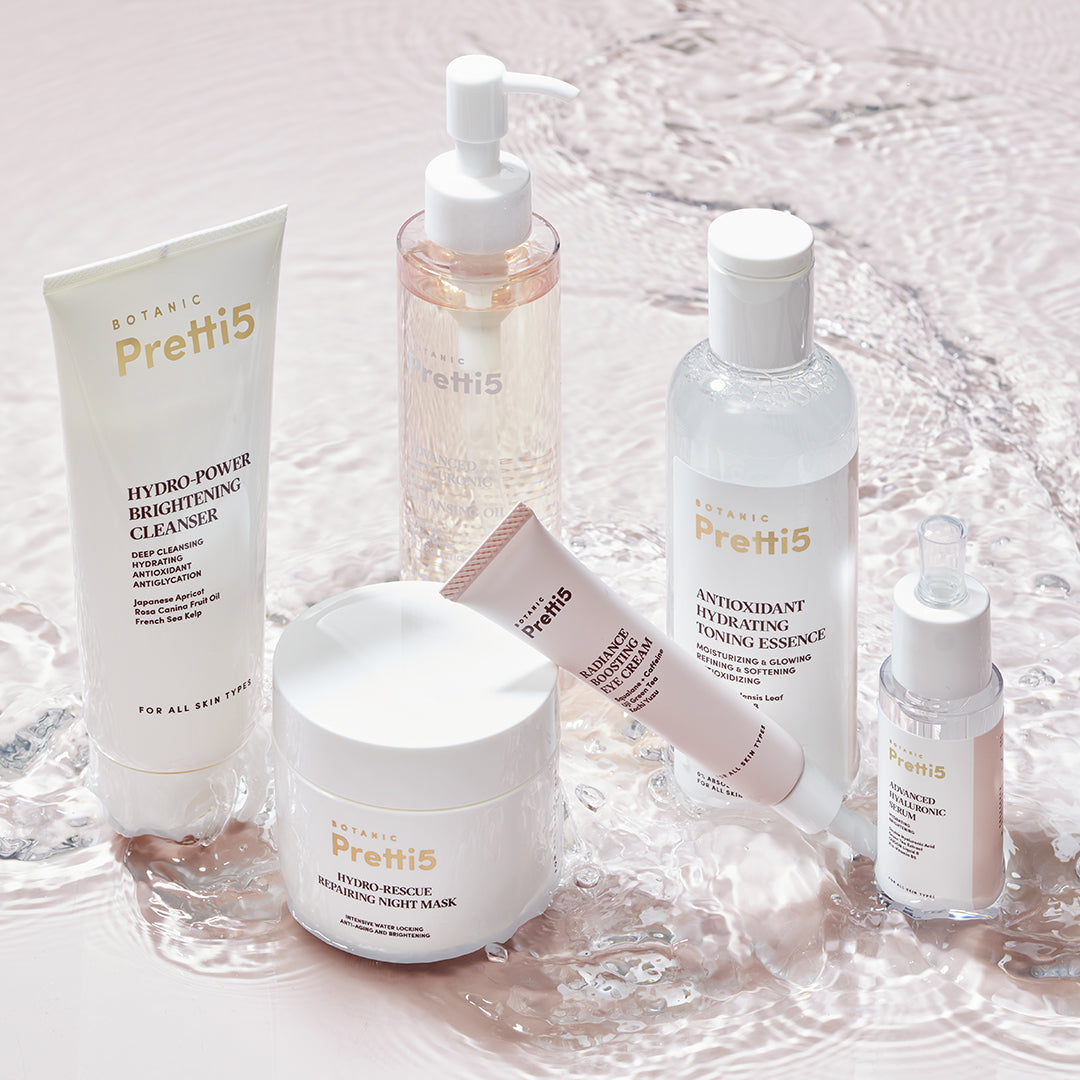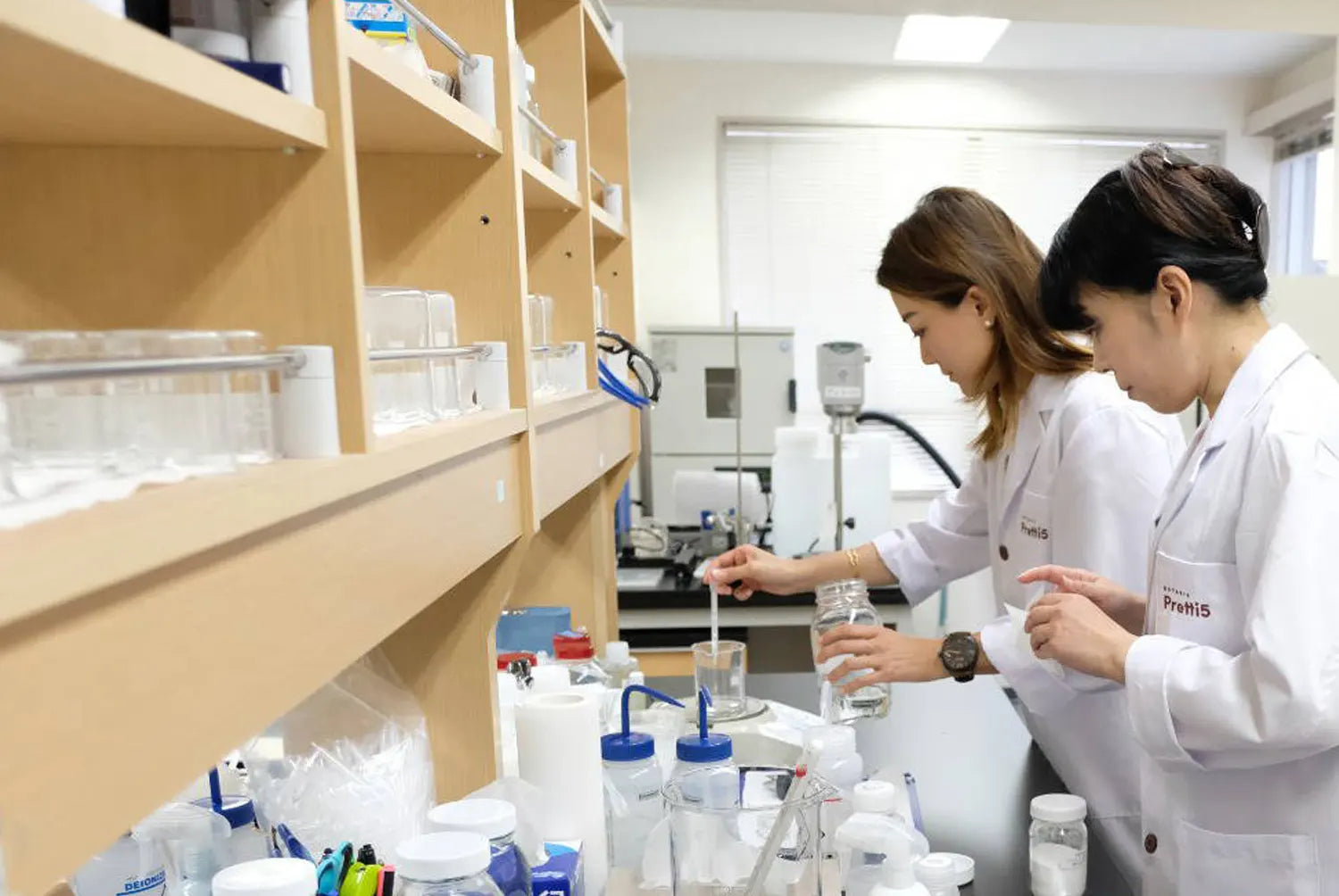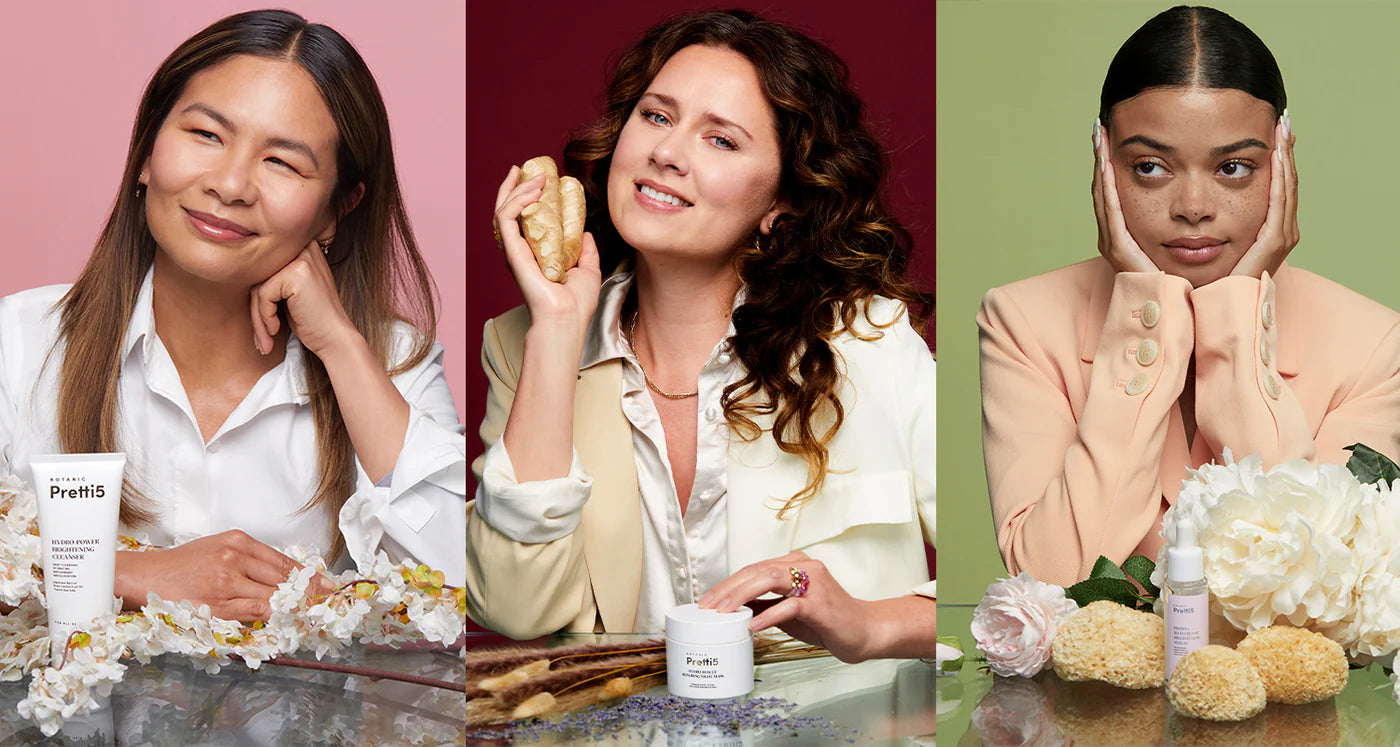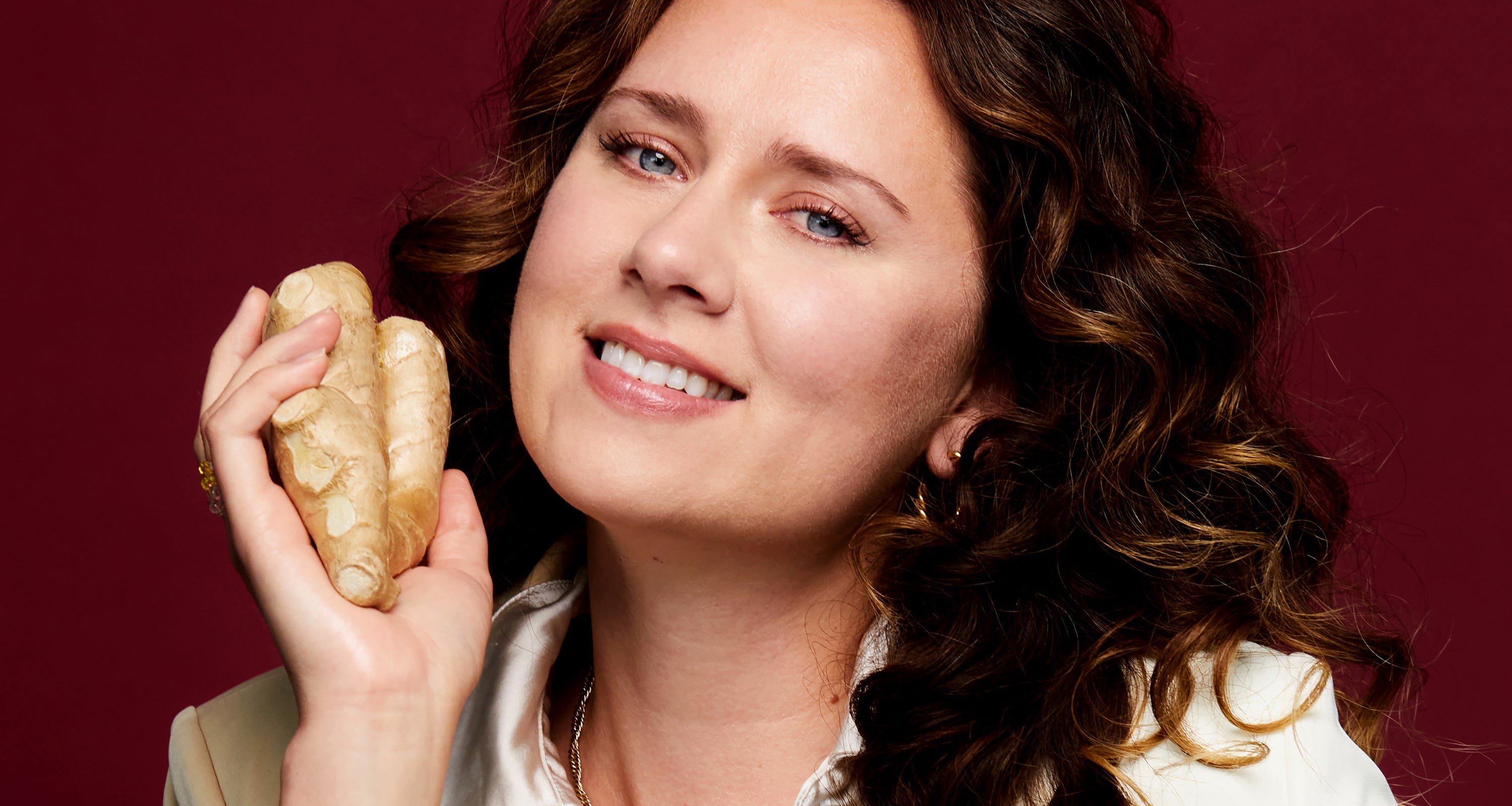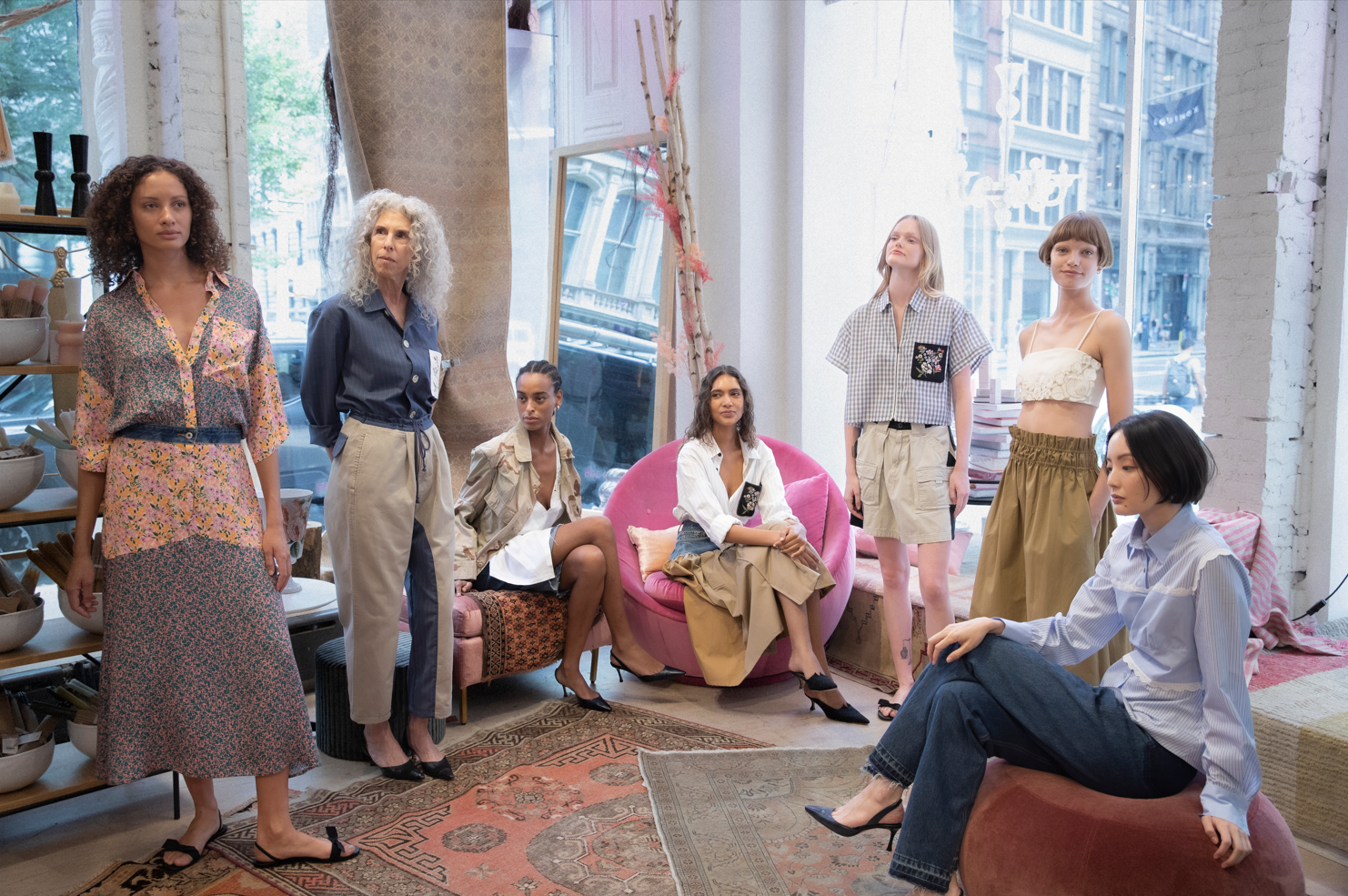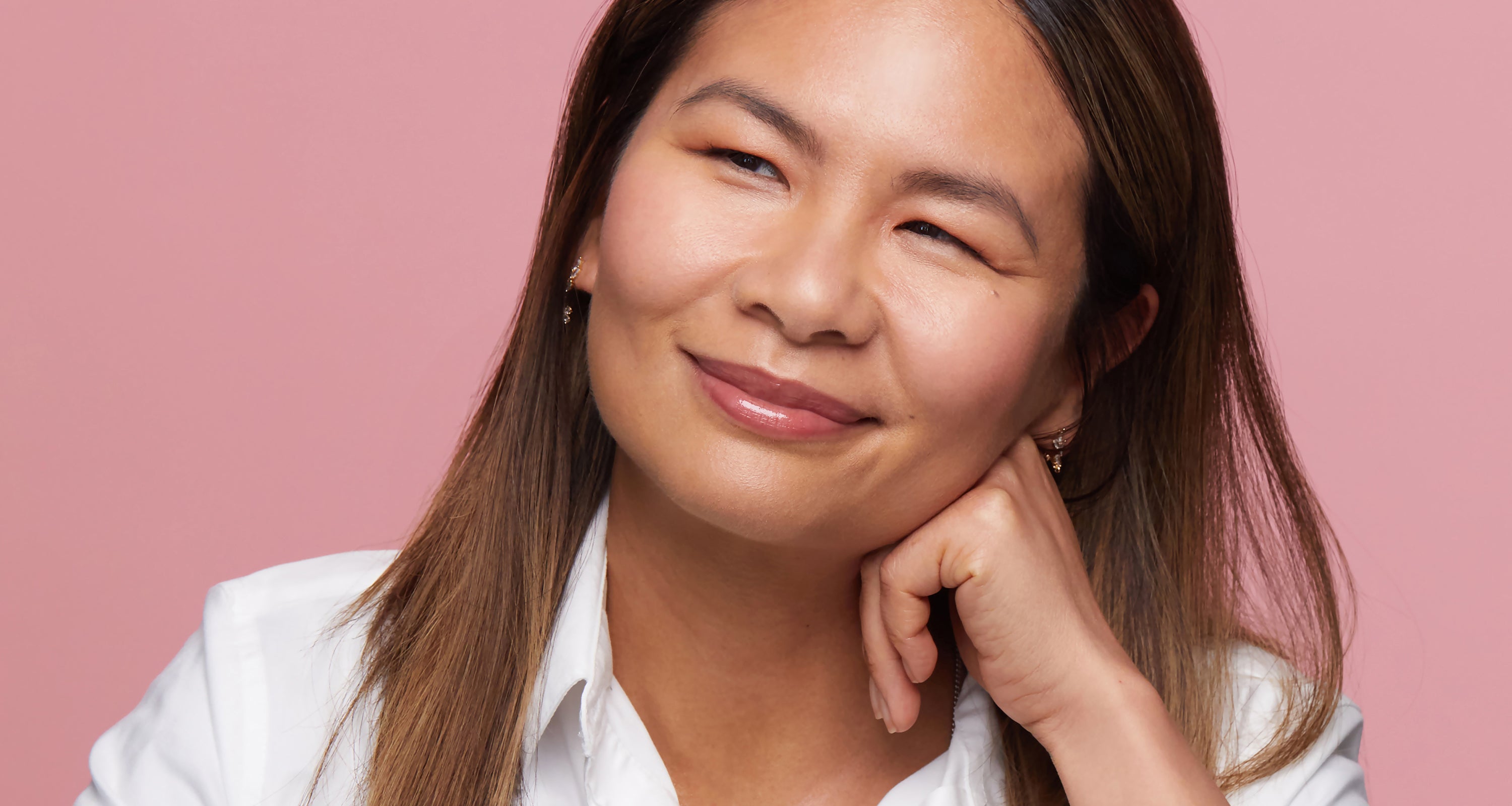
DAPHNE CHANTELL DEL ROSARIO: BEAUTY IS A VERB ft. Skin Brightening Cleanser
Beauty Editors are key players in defining the direction of the industry yet their true influence remains oftentimes undercover behind the pages of magazines and publications.
What influences the choices of an Editor? How are they writing the story of the industry from behind-the-scenes? Who are they in the real world? To reveal and celebrate the craft of beauty editors, we invited three inspiring editors from LA to join a conversation about skin, culture and lifestyle.
Meet Daphne Chantell, Beauty Editor and Makeup Artist who moved to the 'City of Dreams' aka. Los Angeles from the Philippines as a young girl. Arriving as the first Editor to the Pretti5 set, her radiant energy and kind presence filled the air with lightness and an appreciation for beauty immediately. Working with celebrities such as Demi Moore and Sharon Stone, as well as publications like Allure, Daphne has a talent to reveal inner qualities through the various mediums of makeup - which again makes her perspective as an Editor more layered with practical experience.
How does your experience as a makeup artist shape your editorial perspective? Given the practical knowledge that you possess, what are important aspects in skincare that those who don’t work with skin up-close and day-to-day might miss?
I believe Makeup artists develop a unique editorial perspective through our hands-on experience with various skin types, tones, and conditions. I think understanding the importance of skincare as a foundation is vital for flawless makeup application.
The importance of the trial and error of testing the variety of products on a daily basis is so beneficial, versus on a consumer standpoint where they are influenced on what they see is being promoted. This makes it harder to find the right products that work for you, specifically that is actually good for you!
Do you test new products first on yourself or on shoots? How much do you rely on your own personal experience vs. the conversation you share with others on set when you evaluate new skincare trends or products?
While personal experience can be valuable, I prioritise the safety and well-being of my clients. I first test products on myself for a couple of weeks before transferring it to my work kit. During shoots, I closely monitor the performance of new products on models and have open dialogue- honestly it’s one of my favorite things to do.
You mention that “Beauty is a verb for you, not a noun!”. We love this! How do you activate beauty? What are your beliefs and routines?
Beauty to me means embracing self-care practices, being confident with yourself, and finding joy in everyday experiences. Engaging in creative activities that bring joy and inspiration, whether it’s makeup, art, or other forms of expression. Like the act of doing your skin care routine or applying your makeup - I find beauty in how that act transforms you into feeling your best self. Remember, beauty is a subjective concept, and what brings beauty into one’s life can vary from person to person. The key is to find what resonates with you and makes you feel more fulfilled and vibrant in your own unique way.
How would you define your very own beauty standard? What cultures do you relate it to and how did it evolve over time?
My very own beauty standard is embracing our own uniqueness and individuality.
Beauty standards vary significantly across different cultures and evolve over time due to various social, historical, and cultural factors. I relate it to growing up in America where I did not see people who looked like me on tv and magazines. Today it has evolved to seeing familiar faces and I finally feel seen.
As someone representing the Asian American community, how do you wish to influence global beauty standards?
As an Asian-American I wish to influence us all to love the beauty of diverse ethnicities, skin tones, body shapes, and features, challenging the notion of a one-size-fits-all beauty standard.
Have you ever tried Traditional Chinese Medicine infused skincare? What is your perception of it?
I am a big fan of TCM skin care. Perceptions of TCM skincare vary among individuals. Some people appreciate the use of natural ingredients and the potential benefits they offer for the skin. TCM’s long history of use in traditional healing practices may also add to its perceived effectiveness and credibility.
However, like any skincare approach, results may vary depending on an individual’s skin type, specific concerns, and overall health. Some may find TCM skincare to be effective in addressing their skin issues, while others may not see the same results.
It’s essential to remember that skincare is a personal journey, and what works for one person may not work for another. If you’re interested in trying TCM skincare products, it’s advisable to consult with a qualified dermatologist or skincare professional to determine the best approach for your specific needs. They can help guide you towards products and routines that suit your skin type and address your unique concerns.

What are some of your favourite ingredients in skincare products? Please list.
- Hylauronic acid
- Vitamin C
- Alpha-Hydroxy Acids
- Ceramides
- Vitamin E
- Retinol
- Algae
We fuse Traditional Chinese Medicine, Oriental Adaptogens and Western Science-Backed Ingredients in our products. Rank their importance 1 to 3 and elaborate why you chose the order.
- Traditional Chinese Medicine (TCM): TCM has a rich history and has been used for thousands of years. It incorporates holistic principles, personalized treatments, and natural remedies to promote overall well-being. Its time-tested efficacy and holistic approach make it a strong foundation for your products.
- Western Science-Backed Ingredients: Western scientific research provides valuable evidence-based data on the safety and effectiveness of ingredients. By incorporating scientifically proven components, you can enhance the credibility and trustworthiness of your products, appealing to a broader audience seeking evidence-based solutions.
- Oriental Adaptogens: Adaptogens are known for their ability to help the body adapt to stress and maintain balance. By combining oriental adaptogens, you can tap into their potential to complement TCM principles and support overall health. While they are essential, I ranked them third as they may require more research to gain widespread recognition compared to TCM and Western science-backed ingredients.
By blending these three elements, your products can benefit from the best of both traditional wisdom and modern scientific understanding, offering a comprehensive and well-rounded solution for customers seeking holistic wellness.
What does “Made in Japan” represent to you?
Made in Japan to me shares a deep meaning of craftsmanship, mentorship and dedication. Overall, to me it represents a commitment to quality, innovation and precision, making it a mark of excellence.
What is your first impression of Pretti5 and what else would you like to learn about the brand or products?
Seeing Pretti5 the first time says it in their name, it’s pretty and cute! I would like to learn how and why it was started and the main key products that inspired the line.
From your friends, colleagues and family, who would you recommend trying our products and why?
Definitely my friends and colleagues for its healing components and proven results.
Photographed by Renée Parkhurst
Shop SKIN BRIGHTENING CLEANSER
